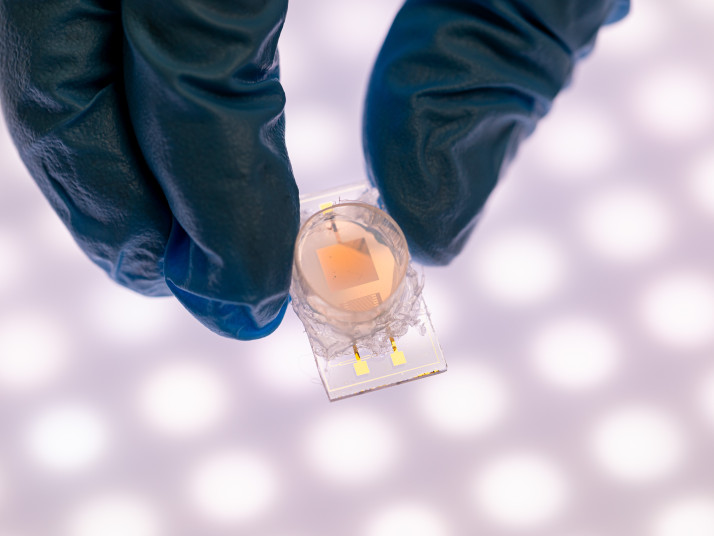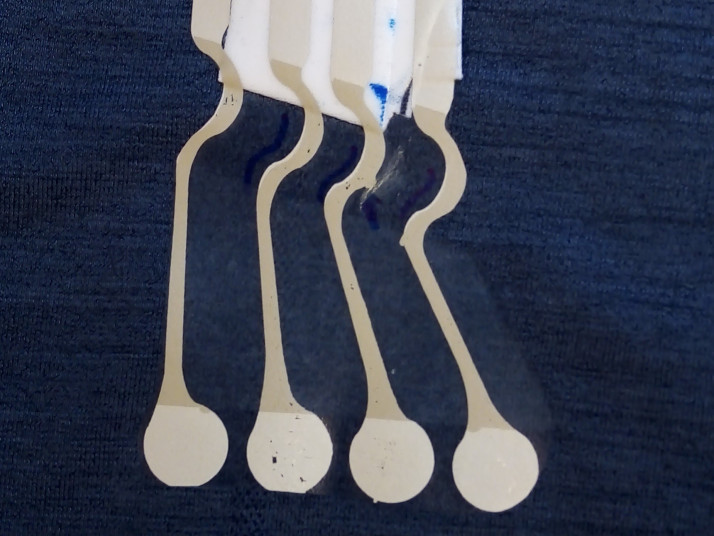The Sensing Technologies Lab strikes again
Von Giulia Maria Marchetti
Sensors are used to gather accurate and real-time data on a wide variety of parameters, including physical, chemical, biological, and environmental factors. Developing and improving sensors is crucial since it enables advancements in fields such as healthcare, environmental monitoring, industrial automation and smart technologies. The Sensing Technologies Lab of unibz is currently working in this direction by developing and testing different types of sensors. The relevance of their work is getting internationally recognised by the many prizes received by the members of the lab.
Giulia Elli, biotechnologist, was awarded the “Best YP Poster Award” at the IEEE Sensors 2024, which took place in Kobe, Japan, in October. The work she presented focused on the design of a sensor for the detection of nano plastics in water, focussing on its sensitivity towards two different types of molecules. When present, nano plastics can interact with the carbon nanotubes present on the surface of the sensor and induce an increase in the current generated: the higher the nano plastics concentration, the higher the current that is generated. This system is particularly interesting since the sensors are extremely small and they enable the detection of these contaminants in a quick, easy and convenient way. In the future the technology she is working on might improve the detection of these molecule, favouring actions to reduce environmental pollution.

Same lab, different application: Camilo Eduardo Tellez Villamizar, electronic engineer, is tackling the problem of peripheral cardiovascular diseases using a sock. He developed a dry electrode that is able to measure the pulsation rate of the dorsalis pedis artery, an artery present in the foot, making it possible to see if there are pressure problems in this area of the body. The material used for the electrode is stretchable and enables its integration in garments: Camilo is in fact working on its integration in a sock in order to obtain a wearable and comfortable sensor that can constantly monitor heart parameters in a convenient way. His research paves the way to systems that can easily monitor our parameters during the whole day, making preventive medicine a reality. The importance of his work was recognised with the “Best Poster Award” at the FME Conference 2024 in Diepenbeek, Belgium.

Both researcher also recently took part in the Bozen-Bolzano Science Slam, where they amused the audience with engaging stories about their research. An important confirmation also for the Sensing Technologies Lab, run by prof. Paolo Lugli and prof. Luisa Petti, highlighting the relevance of the work carried out in their research group. Two other PhD students, Moritz Ploner and Giovanna Gentile, were in fact recently also awarded prizes for their work at international conferences. The work of the unibz research group demonstrates that great results don’t always require big solutions: a small sensor can make a big impact!
Related people: Giulia Elli, Camilo Eduardo Tellez Villamizar, Paolo Lugli, Luisa Petti